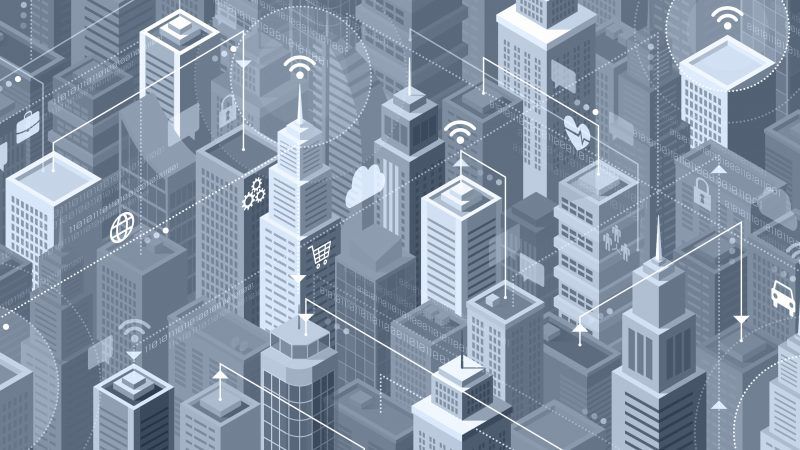The internet has changed the way we connect with each other in a significant way. It has given us access to communication tools that were once the stuff of science fiction. We can now reach people on the other side of the world instantly, and we can share our thoughts and ideas with millions of people at once. The internet has undoubtedly connected us in ways that were impossible before, but it has also driven us apart.
Communication is a whole new standard
One of the most significant changes that the internet has brought about is the way we communicate. In the past, if we wanted to speak to someone, we would call them on the phone. This direct form of communication was the norm for decades. However, now there are so many other ways to communicate that it has become less common to use the phone.
Video calls have become the norm, and apps like Facetime and Zoom have made it easy to see and speak to someone face-to-face, no matter where they are in the world. This type of communication has been a game-changer for long-distance relationships, families who live far apart, and even businesses who need to connect with people in different parts of the world.
However, while video calls can be more personal and effective than phone calls, they can also be more demanding. It’s easy to ignore a phone call or to let it go to voicemail, especially when you can’t search for the phone number beforehand. But it’s much harder to ignore a video call. When someone is staring right at you, it can be challenging to say no or to end the call. This can lead to a feeling of being constantly connected, which can be both a blessing and a curse.
Social Media
Another way that the internet has connected us is through social media. We can now share our lives with the world through platforms like Facebook, Twitter, and Instagram. This has allowed us to connect with people we may have lost touch with, and to stay connected with family and friends who live far away.
However, social media has also had a dark side. It has made it easier for people to spread hate, misinformation, and conspiracy theories. It has also made it easier to compare ourselves to others and to feel like we’re not measuring up. This can lead to feelings of isolation and depression, which is the opposite of what social media was designed to do.
The way we meet new people
The internet has also changed the way we interact with strangers. In the past, if someone wanted to meet new people, they would join a club, attend a social event, or strike up a conversation with someone in a public place. However, now there are so many online communities and chat rooms that it’s easy to meet people from all over the world without ever leaving your house.
While this can be a great way to meet new people, it can also be dangerous. It’s easy for people to hide behind a screen and pretend to be someone they’re not. This has led to an increase in cyberbullying and online harassment, which can be devastating for the victims. It’s important to be cautious when interacting with strangers online and to be aware of the risks.
Gaining knowledge through media & negative effects
Finally, the internet has changed the way we consume media. In the past, we would watch TV or listen to the radio, and we would all be watching or listening to the same thing at the same time. This meant that we had a shared experience that we could talk about with our friends and family.
However, now we have access to an endless supply of on-demand content. We can watch movies, TV shows, and listen to music whenever we want, which means that we’re no longer all watching or listening to the same thing at the same time. This can lead to a feeling of disconnection, as we’re no longer sharing a common experience with others.
The internet has also made it easier to filter out information that we don’t agree with. We can now curate our own news feeds and only consume media that confirms our existing beliefs. This has led to an increase in political polarization, as people become more entrenched in their own views and less willing to listen to opposing viewpoints.
Furthermore, the rise of social media has led to the creation of online echo chambers, where people only interact with others who share their views. This has contributed to a growing sense of division between different groups, as people become less willing to engage with those who hold opposing views.
In order to mitigate the negative effects of the internet, it’s important to maintain a balance between online and offline interactions. While it’s great to be able to connect with people from all over the world, it’s also important to maintain real-world connections with family and friends.
Additionally, it’s important to be aware of the risks associated with online interactions, and to take steps to protect ourselves and our personal information. This includes being cautious when interacting with strangers online, and being aware of the risks of cyberbullying and online harassment.
Finally, it’s important to be aware of the impact that the internet can have on our mental health. While it’s great to have access to a wealth of information and entertainment, it’s important to take breaks from technology and to engage in offline activities that promote well-being and social connection.
Conclusion
In conclusion, the internet has both connected us and driven us apart. While it has brought about many positive changes, it has also had negative effects on our social connections and mental health. It’s important to maintain a balance between online and offline interactions, and to be aware of the risks associated with online interactions. By doing so, we can make the most of the benefits of the internet while minimizing its negative effects.







